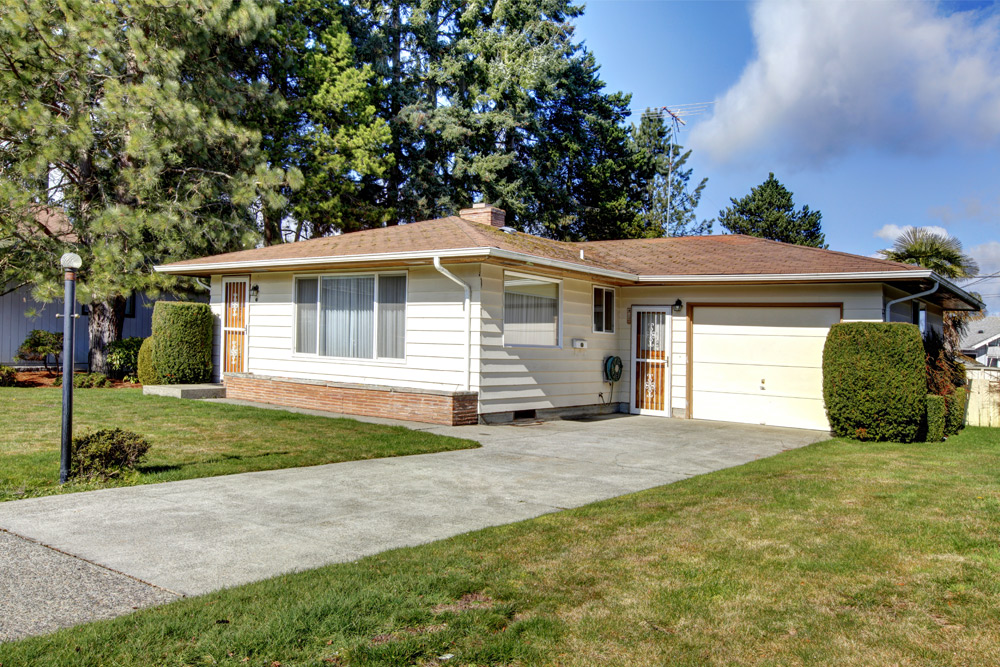Whether you’re looking for a townhouse to buy, a detached single-family home, or something else like a condo, if you’re up for the challenge, it can be smart to buy a fixer-upper. When you find a great house that needs work, you can save money on your mortgage, and you’re giving yourself the opportunity to really make it your own.
Of course, being up to the challenge is really the key phrase here. Not everyone is, but if you are, the following are things to consider in your home search.
The Neighborhood
One of the perks of going for a house that needs work rather than one that’s turnkey is the fact that you can possibly afford a property in a desirable neighborhood that otherwise you’d be priced out of. That’s what you should consider first and foremost if you’re willing to put work into a home—what’s the location like?
If you find a house in a great location and then you do the work, you might have something very valuable if you do want to sell at any point.
You can also look for homes in established neighborhoods with mature landscaping that are incredibly desirable if you’re willing to look at properties that aren’t in perfect condition.
Location is something you can’t change, whereas nearly everything else about a house, you can.
As you consider location, think about amenities and features that are most important to you in your life. For example, are there nearby shops and restaurants? What is the school system like?
Your location is also going to impact your renovation budget. You want to make sure you’re doing improvements and upgrades that are going to be in line with the other homes in the neighborhood. You don’t want to over-improve to the point that your home is worth more than what the neighborhood can support.

How to Look For Fixer-Uppers
There are a lot of ways to find fixer-uppers. If you’re already working with a real estate agent, they’re going to be your best resource. They’re going to have an idea of things that you might not see online, and they’re also going to have access to things like pocket listings.
You can also search online and use keywords like “needs work,” or you can search based on homes that are below market value.
Spend some time searching local foreclosures, auctions, and short sales. Some distressed properties may need minimal work, but they end up being sold below their market value because someone has to get rid of them quickly. These homes are typically sold as-is, and you might not have access to disclosures, so if you go with this option, you need to make sure you have enough money in your budget to cover unexpected and potentially unpleasant surprises.
There are real estate investor websites if you don’t have access to the MLS, and they’ll include public real estate listings, including listings for off-market properties.
Tax records can be another way to find a fixer-upper, but you have to be willing to do some research. Tax records can be searched online using the local government website where you live. If a homeowner is having a hard time paying their taxes, then it can mean they’re also not caught up with maintaining their property, and they might be foreclosed on. That means you could potentially make a direct offer to a homeowner before the property goes back to their mortgage lender.
Layout
We talked about how important location is when you’re buying a fixer-upper. Another consideration is the layout. A good fixer-upper is one that’s going to hold appeal for a large pool of buyers if you think resale could even be a possibility in the future.
Three-bedroom homes, for example, tend to be the most popular among buyers.
The layout should also have a decent flow because it gets expensive and time-consuming to move walls. Sometimes it’s not even possible at all.
It’s tough to not only move walls and change layouts but also to increase the square footage of a home.
Condition
It’s one thing to buy a home that needs some work. It’s another to purchase property that has structural issues.
If a home has any structural or mechanical problems, it’s more expensive to fix these issues than it would be to make cosmetic changes.
If you’re going to buy a fixer-upper, you should hire a professional inspector so that you can get a more in-depth look at the pros and cons of the home. A home inspector will look at the foundation, make sure the electrical work is up-to-code, ensure the plumbing is working well, check the roof, and check the windows and the HVAC system.
Examples of cosmetic issues that are pretty easy to fix include older bathroom fixtures or tiles, dated cabinets in the kitchen, bad countertops, stained carpets, or hardwood floors that need to be refinished.
You might think about hiring not only an inspector but also a contractor to give you an estimate of the work that needs to be done and what you can expect cost-wise unless you realistically think you can do the work yourself.

Paying for Improvements
The cost of improving a home will include permit fees, materials, and labor, and you’ll have to figure out where you’ll live during the renovations if you aren’t able to stay on-site during that time.
You can buy fixer-uppers with a traditional conventional loan, and then you can pay for your improvements as you go, out of pocket. You can also opt for a mortgage specifically for fixer-uppers, so you’re financing the house and the renovations.
Examples of lands that are for fixer-uppers include the FHA 203(k) and the FHA 203(k) streamlined.
There’s also the HomeStyle loan, which is guaranteed by Fannie Mae and allows for improvements not covered by the FHA 203(k), like landscaping or pools.
Finally, the ChoiceRenovation loan is guaranteed by Freddie Mac, and borrowers can finance renovations of up to 74% of the value of a home.






